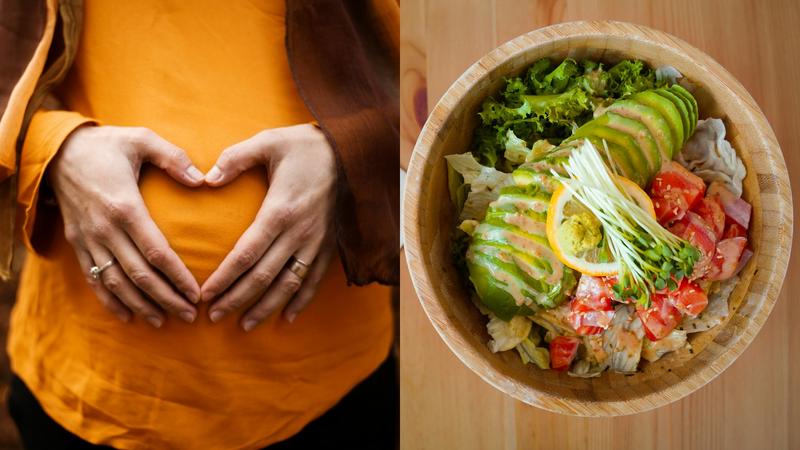Published 14:49 IST, January 24th 2024
Nutritious Foods For Pregnant Women To Ensure The Well-being Of Mother And Child
A well-balanced and nutritious diet during pregnancy contributes to the health of the mother and baby and ensures a smooth pregnancy journey.

During pregnancy, maintaining a well-balanced and nutritious diet is crucial to support the health and development of both the mother and the growing baby. A wholesome diet rich in essential nutrients can contribute to a smoother pregnancy, optimal fetal growth, and the emotional well-being of the expecting mother. According to the National Health Mission(NHM), you need to eat one extra meal a day during pregnancy. Here are some key food choices for pregnant women.
Folate-rich foods
Folate, or folic acid, is vital for fetal neural tube development. Include foods such as leafy greens (spinach, methi), citrus fruits, beans, lentils, and fortified cereals in your diet. Additionally, prenatal supplements containing folic acid may be recommended.

Calcium sources
Calcium is essential for the development of the baby's bones and teeth. According to NHM guidelines, dairy products such as milk, cheese, and yoghurt should be added to your diet. Other sources of calcium include sesame seeds, almonds, soya milk, turnips, and eggs.
Iron-rich foods
Iron is crucial for preventing anemia during pregnancy. Include iron-rich foods like lean meats, poultry, fish, beans, lentils, and fortified cereals in your meals. Consuming vitamin C-rich foods alongside iron sources can enhance iron absorption.
Protein-packed foods
Protein is essential for the development of the baby's organs, muscles, and tissues. Include lean meats, poultry, fish, eggs, dairy products, legumes, nuts, and seeds into your diet to meet your protein needs. As per NHM, you need to add a handful (45 grams) of nuts and at least two cups of daal to provide daily requirement of proteins in vegetarians.

Omega-3 fatty acids
Omega-3 fatty acids are crucial for the baby's brain and eye development. Include fatty fish (like salmon), chia seeds, flaxseeds, walnuts, and algae-based supplements to ensure an adequate intake of these essential fats.
Whole grains
Opt for whole grains like brown rice, quinoa, oats, and whole wheat bread to provide essential nutrients such as fiber, B vitamins, and minerals. These grains help in maintaining stable blood sugar levels and provide sustained energy.

Fruits and vegetables
Eat a variety of colorful fruits and vegetables to ensure a diverse range of vitamins, minerals, and antioxidants. These foods contribute to overall health and support the immune system. Aim for a rainbow of colors on your plate. NHM specifically recommends seasonal and local veggies for the health of the mother.
Hydrate yourself
Staying hydrated is important during pregnancy. Drink plenty of water and include hydrating foods like watermelon, cucumber, and oranges in your diet. Proper hydration supports the increased blood volume and amniotic fluid during pregnancy.
Updated 10:20 IST, January 25th 2024



